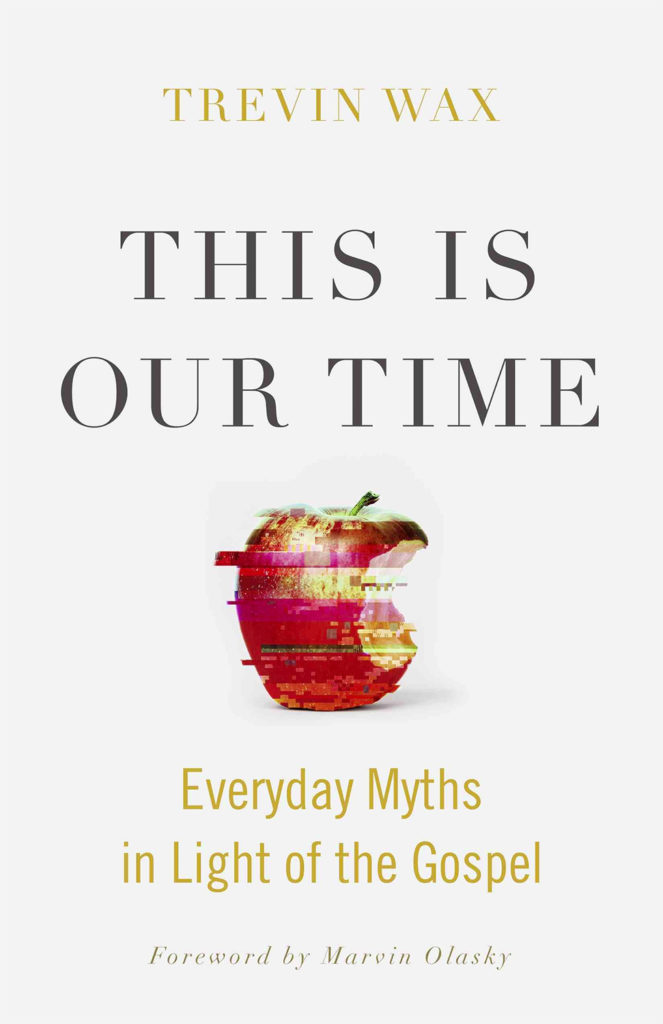
The Church has a discipleship problem—not a lack of it but a glut coming from wrong sources without being filtered through the right source.
By Aaron Earls
The American Church has a discipleship problem. The issue is not a lack of discipleship, however, but rather a glut of discipleship coming from the wrong sources without being filtered through the only right source.
Almost every Christian wants to assert they are being faithful to the Bible in the choices they make and the attitudes they hold, yet most are being subtly influenced and discipled in ways that run contrary to Scripture.
This is not some insidious conspiracy theory, but rather the way human life has functioned since the serpent first posed the question, “Did God really say …?”
Churchgoers and even church leaders often simply miss where that question is being asked and how it is shaping our hearts and minds.
Disciples of Disney?
In an essay at The Atlantic, Graeme Wood describes being a 40-year-old man taking a trip to Disney World by himself as the coronavirus pandemic rages outside “the happiest place on Earth.”
Noting that Disney does not offer any religious services on the park grounds, Wood retorts, “I don’t think that statement is as straightforward or accurate as it appears, unless you suppose, naively, that religion is just a set of things you believe.”
Another view of religion, he maintains, is “more subtle and pervasive. It is the base layer of our imagination and consists of stories and ideas so deeply imprinted in our minds that we do not realize that our realities are formed by them.”
Spotting a cross-tattooed mom and dad riding the monorail to the park with their kids on a Sunday, Woods says he is confident they would say Jesus and not Donald Duck is their redeemer, but their hearts are nonetheless defined by the stories of Disney.
“… if you ask them about love, they will tell you about Beauty and the Beast. If you ask them about growing old, they will tell you about Up. If you want to talk about overcoming adversity, they will ask if you have heard the good news about Aladdin. If enough of your imagination consists of stories like these, authored by (or filtered through) the Disney corporation, then what else is Disney World—where these narratives are ubiquitous and glorified—but a place to nourish your soul in a time of famine?”
How many people in our congregations have similarly been discipled by Disney?
In This Is Our Time, Trevin Wax writes of the central story of life that Disney constantly reinforces: “As long as you are true to yourself, all your dreams will come true.”
This isn’t a condemnation of the “House of Mouse,” but rather a reminder that Christians must be aware that Disney “knows how to craft a message because they’ve found the formula that reinforces what most Americans already believe to be true about the purpose of life.”
For many, however, the Disney myth doesn’t match their world, but they are no less discipled by secular stories of our age.
Cable news channels and politicians assert that only their ideology can bring success and those who disagree are enemies to be destroyed. Salvation is achieved through the ballot box and electing people, not a bloody cross and an empty tomb.
Modern love stories elevate our personal happiness and assume everlasting joy can be found if you find just the right person to meet all your needs (and if at first you don’t succeed, try, try again). They seem to ignore the One perfect person in all their pursuits.
So where does that leave church leaders trying to combat 24/7 news and entertainment channels, including those that further inflate our egos by granting us our favorites immediately on-demand, with a few hours (at most) each week?
We have to recognize more discipleship will and should take place outside of the church walls. This allows us to transition to equipping and encouraging churchgoers to engage in the most influential discipleship activity possible—reading and studying their Bible.
Scriptural solution
Many pastors and church leaders have recognized the secular worldviews competing with a biblical perspective but have insisted the only remedy is complete withdrawal from modern culture and those who produce it.
This presents two significant issues for Christians. One, if we avoid those outside the church, we make it extremely difficult to win them to Christ. It’s hard to fulfill the Great Commission if we refuse to actually go.
Two, we also perpetuate a false sense of security, as if all the bad things are outside. The revelation of sexual abuse within the church, including among the most fundamentalist circles of Christianity, should remind us that isolation is no replacement for sanctification. No matter where we go, as fallen people, we bring sin with us.
Instead of total avoidance, church leaders can train their congregants to see the stories of the world through the light of God’s story. The Bible is powerful, but too many Christians only verbally assent to the idea.
Lifeway Research has conducted decades of research on discipleship and what actions bring about real spiritual growth.
Numerous factors play a role, but no action has a greater impact on every measure of discipleship as regularly reading God’s Word. Reading the Bible is the number one predictor for spiritual growth as an adult. It is also the best predictor that a child growing up in the church will become a spiritually healthy young adult.
Despite all this, Lifeway Research found only 32% of Protestant churchgoers say they read the Bible daily, while around a quarter (27%) say they read a few times a week.
This means half of the people in your pews open their Bible once a week or less. If you don’t want them discipled by Disney (or Fox News, CNN, Netflix, HBO, etc.), they need to be in God’s Word more.
Filling themselves with the grand narrative of Scripture allows them to approach the cultural stories they see from a redemptive perspective.
As Wax writes in This Is Our Time,
“Faithfulness requires us to see the world’s longings and lies in light of the gospel. If the gospel is the light, then whatever is true, noble, and pure in the stories we tell will somehow reflect (even, if dimly) the gospel as the true story of the world. At the same time, if the gospel is the light, then we should expect it to expose whatever is false, wrong and polluted in the stories we tell. Seeing entertainment in light of the gospel means that God’s Story is the great narrative that makes sense of all the world’s stories. And it’s a story that both contradicts lies and fulfills longings.”
What if instead of Beauty and the Beast, the cross-tattooed family at Disney could point to Hosea and Gomer and how that pictures Christ’s love for humanity? Maybe instead of Up, they could describe Abraham’s trust in God’s promise even in his old age.
Perhaps if their discipleship was driven by Scripture more than the screen, they could talk about Aladdin, but quickly move from a story about a pauper who became a prince and rescued the princess to a better one about a King who became a Servant and rescued His bride.
The people in your church are constantly being discipled. The only question is, who or what is doing the discipling? Make sure they (and you) understand the importance of allowing Scripture—more than wishes upon stars—to shape our minds and our hearts.












